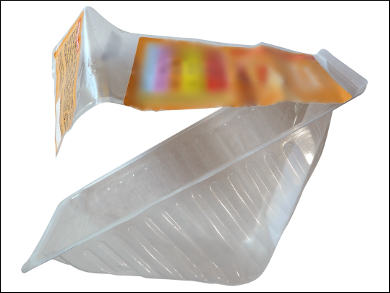At the grocery store, many foods come wrapped in plastic packaging. This creates a lot of waste, and thin plastic films are also not great at preventing spoilage. Moreover, some plastics are suspected of leaching harmful compounds into food.
Peggy Tomasula, United States Department of Agriculture, Washington, D.C., and colleagues have developed an environmentally friendly film made of the milk protein casein. These casein-based films are significantly better than plastics at keeping oxygen away from food, which helps to prevent food spoilage. Additionally, because they are derived from milk, they are biodegradable and edible.
Some commercially available biodegradable packaging varieties are already on the market, but these are made of starch, which is more porous and allows oxygen to seep through its microholes. The milk-based packaging, in contrast, has smaller pores and can thus create a tighter network that keeps oxygen out.
In addition to being used as plastic pouches and wraps, this casein coating could be sprayed onto food, such as cereal flakes. Right now, cereals keep their crunch in milk due to a sugar coating. Instead of sugar, manufacturers could spray on casein coatings to prevent soggy cereal. The researchers are currently creating prototype film samples in and they expect the casein-based packaging to be on store shelves within three years.
- Presented at the 252nd American Chemical Society (ACS) National Meeting & Exposition in Philadelphia, PA, USA
Video on the Research




